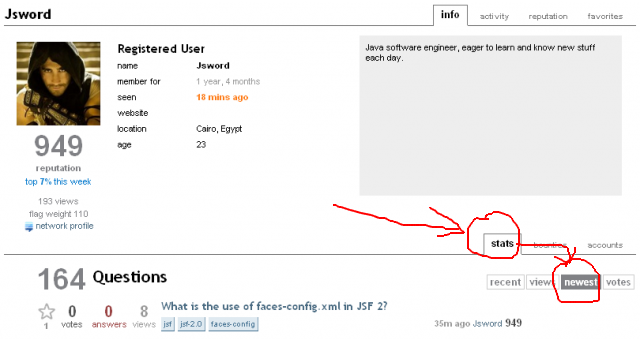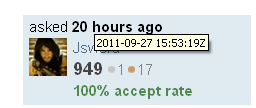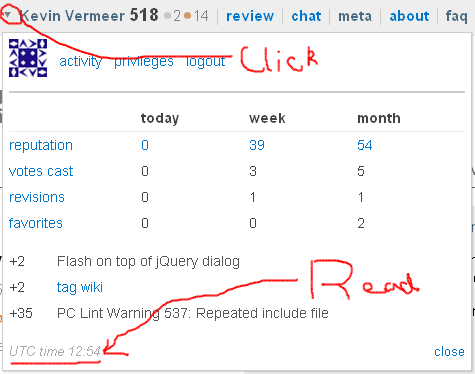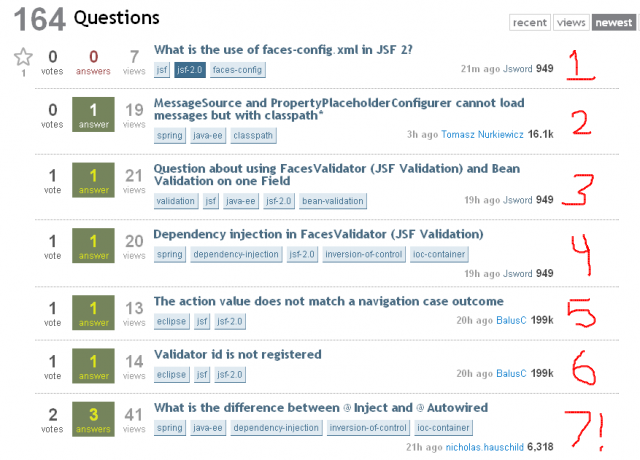1. Answer to the specific question
I agree that the ending time should be shown when the IP limit is triggered.
However, triggering this limit on an individual account should be an educational experience which teaches you not to hit it again, it should not be optimized to allow you to run as close as possible to the limit.
Additionally, it's pretty easy to determine the remaining time without the limit. To do so, go to your profile, and sort by newest:

Then, navigate to the 6th question on the list. You'll see "asked X hours ago" in your user card, subtract this number from 24 and you'll have the number of hours remaining.
If you need more precision, hover over the text to get the time you asked the question in UTC:

and get the UTC time from your dropdown or this site:

Subtract the former from the latter, and you will know down to the second (though caching/implementation details may mess with this) when you can ask again.
2. Analysis of your specific case
The "You are only allowed to ask 6 questions in a 24 hour period" restriction is applied both by account and by IP. Your profile indicates that you've likely hit this limit all by yourself:

Note that the "X hours ago by user" refers to the most recent edit/answer, not the time you posted the question. However, checking the time (see Section 1 above) does indicate that you need to wait to ask more questions. I checked your most recent timestamps.
You asked this question on MSO on 2011-09-28 at 12:10. You asked SO questions on 2011-09-27 at:
- 19:34
- 16:32
- 16:14
- 16:02
- 15:53
- 12:01
Any attempts to ask questions between 19:34 on the 27th and 12:01 on the 28th would have caused this message. You asked your most recent question on 2011-09-28 12:13, which is 24 hours and 10 minutes after this one 6 questions ago. Unless your coworkers asked a question between 12:01 and 12:12 yesterday, they didn't ask anything, and your problem is entirely self-inflicted.
Note that your shared IP will be significant if you get banned from Chat or the site for abuse, or if mods are investigating socks or vote rings. Both socks (which you're not, assuming you've been honest about your situation) and vote rings (which you could be) are handled in the same way, so be careful to avoid abusing the system or you and your colleagues will be banned, and they probably won't like that.
3. Musings on the goal of the rate limit
The goal of the rate limit is to optimize for pearls, not sand. You have 10 pages of questions with 0 votes, and only 4 questions with more than 3 votes, so the blog post is definitely applicable. Work on improving the quality of your individual questions; it's hard to ask 6 great questions in 24 hours.
4. What you should do instead
Spend some time posting more answers! Not only will this teach you about how to ask better questions, researching answers will help you learn and avoid needing to wait to ask a question and wait to get an answer when you have the same problem later.
164 questions and 29 answers is heavily weighted towards the question end of the scale. Answers aren't nearly as rate limited as questions; we don't care much if 0-voted or down-voted answers sit at the bottom of great questions, but low-quality questions waste other people's time (and therefore we rate-limit them to 6/24 hours).
I'm unaware of an answering rate limit for questions that don't get the "low quality answer" flag. (though Jeff does like his rate limits...)




